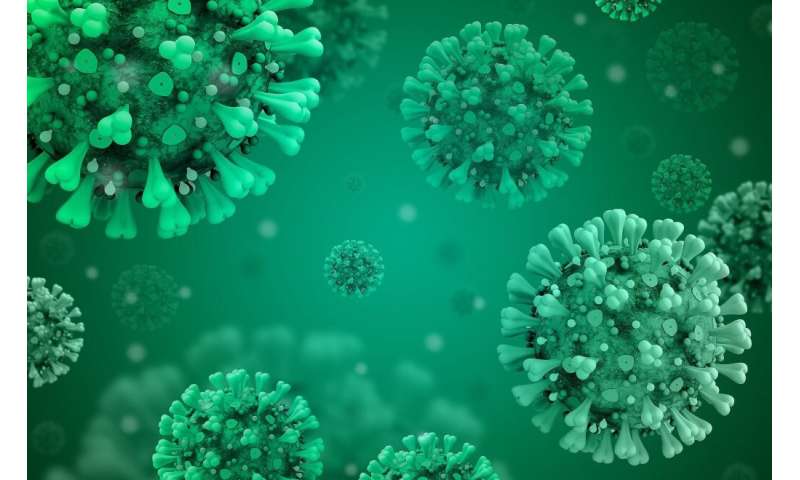

Since the outbreak of the COVID-19 pandemic and its rapid spread, the scientific community has been working on developing an effective treatment for the virus responsible for the disease. Finding drugs that can inhibit the infection caused by SARS-CoV-2 is an essential step to finding the vaccine that can definitively bring the spread of the virus to an end.
In this regard, the URV’s Cheminformatics and Nutrition research group has carried out a computational screening to predict whether there is a medicine authorised for treating another pathology that can inhibit the main protease of the virus (M-pro). This is key to the whole process because this enzyme plays an essential role in the replication of the virus.
The study demonstrates that a human and a veterinary anti-inflammatory drug—Carprofen and Celecoxib—inhibit a key enzyme in the replication and transcription of the virus responsible for COVID-19. The aim of the study was to use computer techniques to analyze whether 6,466 drugs authorized by various drug agencies for both human and veterinary use could be used to inhibit the M-pro enzyme. This enzyme is a protease that is responsible for cutting two polypeptides (generated by the virus itself) and generating a number of proteins that are essential for the reproduction of the virus. Some of the trials coordinated by the WHO against the COVID-19 pandemic also aim to inhibit M-pro using two antiretrovirals such as lopinavir and ritonavir (drugs initially designed to treat HIV).
As a result of the study conducted at the URV, it has been predicted that 7 of these 6,466 drugs may inhibit M-pro. The results have been shared with the international initiative COVID Moonshot which has selected 2 of these 7 compounds (i.e., Carprofen and Celecoxib) in order to test their ability to inhibit M-pro in vitro. The results obtained show that at a concentration of 50 μM of Celecoxib or Carprofen, the inhibition of the in vitro activity of M-pro is 11.90 and 4.0%, respectively. Therefore, both molecules could be used as a starting point for further lead optimization to obtain even more potent derivatives.
The study by the Cheminformatics and Nutrition research group from the Biochemistry and Biotechnology Department of the URV has been led by Drs. Gerard Pujadas and Santi Garcia-Vallvé with the collaboration of Drs. Aleix Gimeno, María José Ojeda-Montes and Adrià Cereto-Massagué, the Ph.D. students Guillem Macip and Bryan Saldivar-Espinoza and student Júlia Mestres-Truyol (double degree student in Biotechnology and in Biochemistry and Molecular Biology at the URV).
Source: Read Full Article